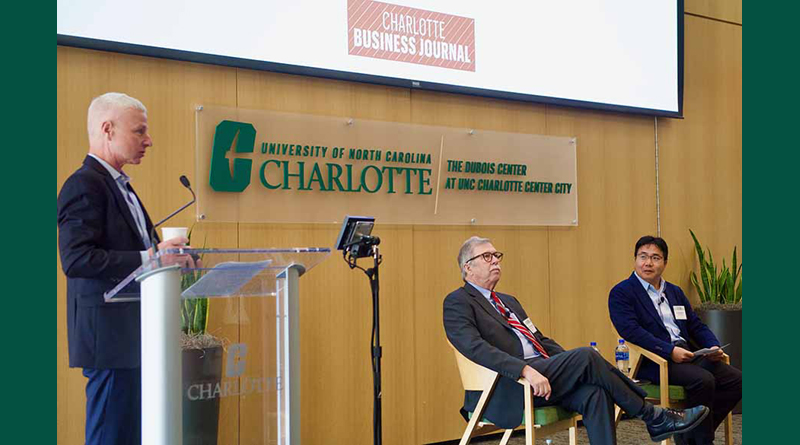Charlotte Economists Optimistic About 2024 Economy
In the bustling heart of Charlotte, as economic enthusiasts and business leaders convened at The Dubois Center at UNC Charlotte Center City for the Charlotte Business Journal Economic Outlook event, the mood was set for a deep dive into the economic forecasts of 2024. The forum, sponsored by UNC Charlotte’s Belk College and School of Professional Studies and in partnership with EO Charlotte, served as a battleground for ideas, with insights from the venerable John Connaughton, professor of financial economics, and Yongqiang Chu, a leading light in real estate and urban economics.
John Connaughton, also the director of the North Carolina Economic Forecast, didn’t mince words. Addressing the elephant in the room—the looming fear among Charlotte and Raleigh’s business echelons of a 2024 recession—he stated unequivocally, “Not going to happen.” This assertion set the tone for an afternoon where data and insights promised to challenge preconceptions.
The dynamic duo of Connaughton and Chu, leveraging a fresh survey of business leader sentiment from Charlotte and Raleigh, alongside Connaughton’s latest economic forecast, issued that very day, painted a picture of cautious optimism. Their analysis, scrutinized by Charlotte Business Journal’s editor Robert Morris in a thought-provoking session, highlighted several critical economic indicators.
Inflation, often the specter haunting economic projections, appears to be retreating to shadows, now just over 3% and inching closer to the Federal Reserve’s 2% target. The experts noted that with housing costs—a significant CPI component—on a downward trend, what we’re seeing might still be the ghost of past rent hikes.
On the real estate development front, the scene is set for a potential renaissance. Predictions of interest rate cuts by summer could reinvigorate a sector that’s seen a 50% to 60% slowdown over the past two years. However, with commercial real estate being a slow beast and $2 billion in Charlotte commercial mortgages coming due by 2025, the sector faces a critical refinancing juncture.
The housing market, despite an influx of multifamily units, remains tight nationwide and in Charlotte, sustaining price pressures. The dream days of 3% mortgage rates seem a relic of the past, with current conditions unlikely to replicate such lows.
Labor market dynamics reveal a state in flux, with North Carolina’s employment gains largely driven by incoming residents rather than an uptick in labor force participation. The ongoing retirement of the Baby Boomer generation and the introduction of smaller successive cohorts into the workforce, compounded by evolving work habits post-pandemic, present a complex puzzle for employers.
As the event wrapped, attendees were left with a mix of reassurance and reflection. The insights from UNC Charlotte’s Belk College experts, grounded in data and analysis, offer a roadmap through 2024’s economic landscape, marked by challenges but also dotted with opportunities for those ready to navigate the changing tides.

